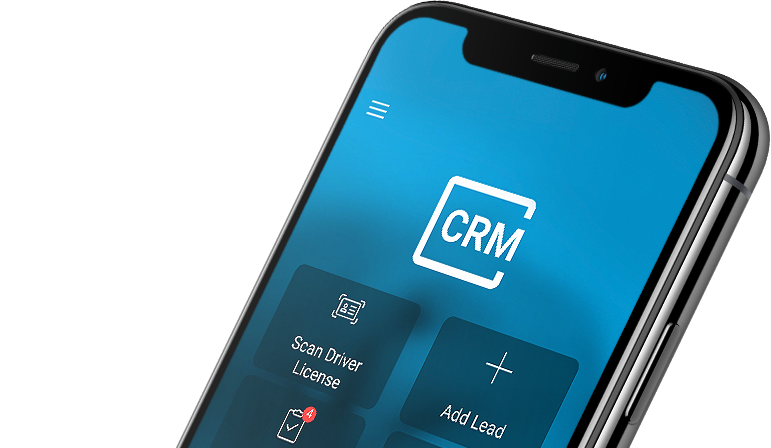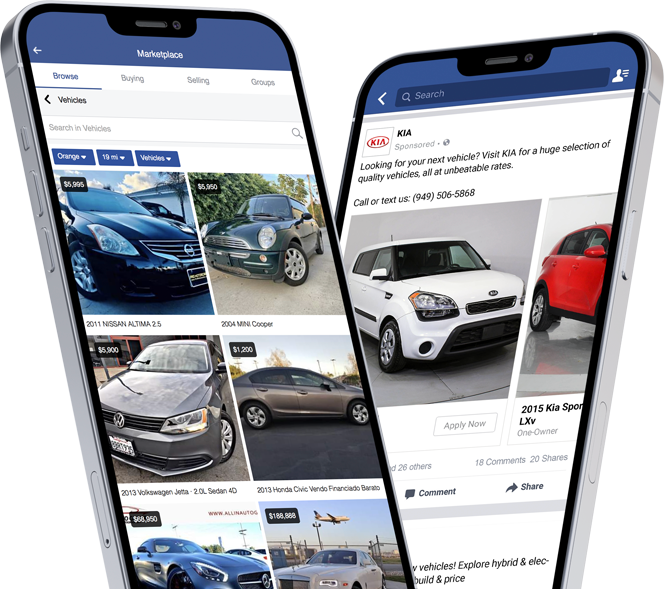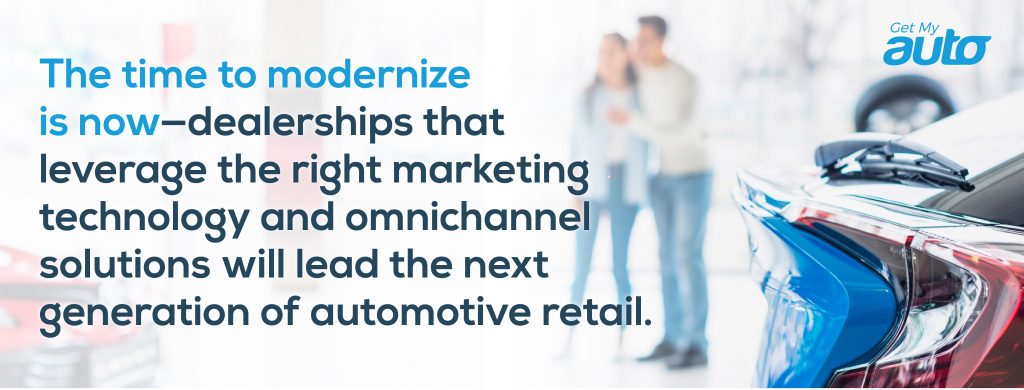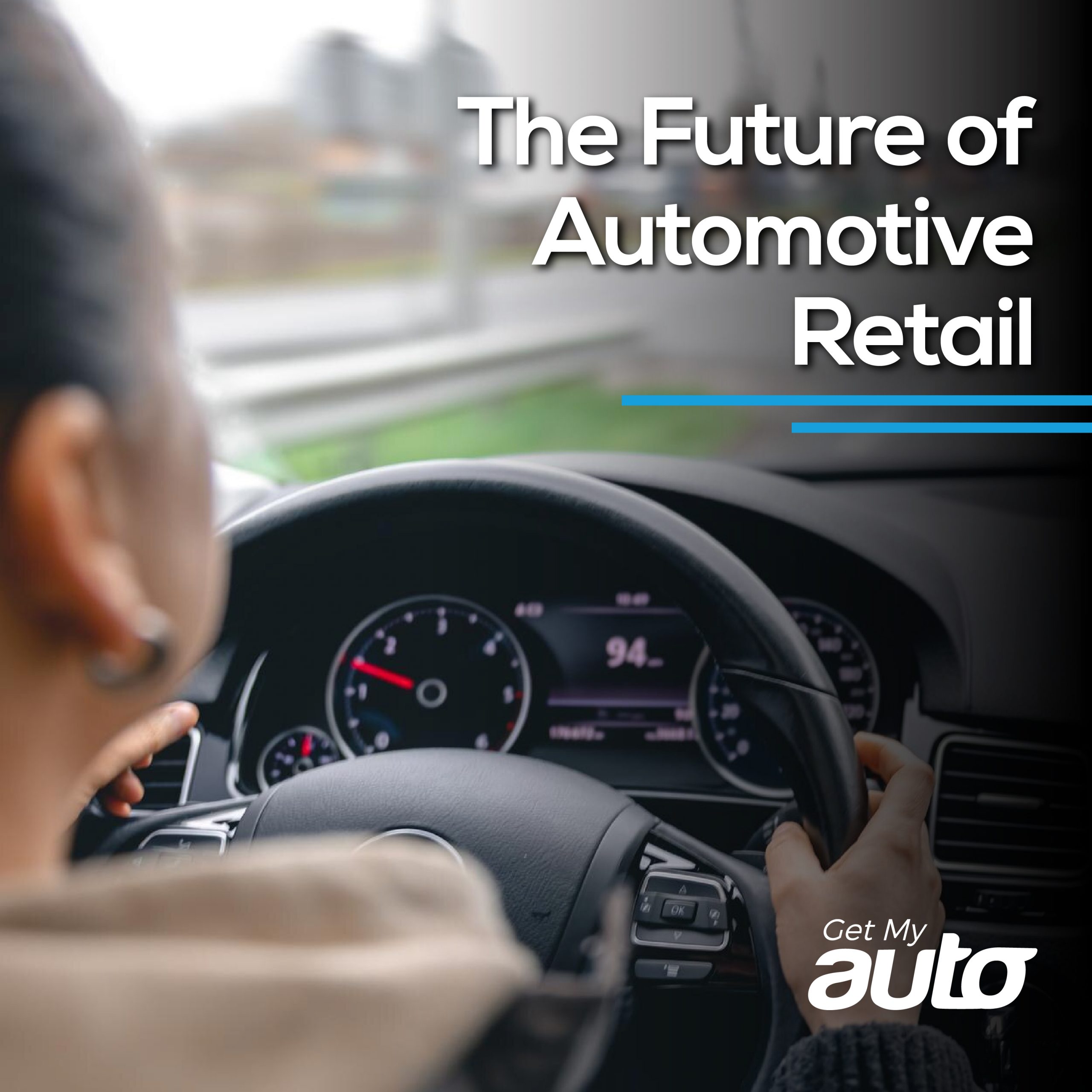EVs, Autonomy, and Omnichannel Success
The automotive industry is undergoing a transformation that is reshaping the way vehicles are manufactured, sold, and experienced. With electric vehicles (EVs) poised to account for up to 25% of new car purchases in 2025, advancements in autonomous technology, and the growing role of software-defined vehicles (SDVs), automakers and dealers must adapt to shifting consumer expectations. At the heart of this shift is the necessity for an omnichannel approach to sales and marketing—one that integrates digital experiences with traditional retail models.
Electric Vehicles: Market Acceleration in 2025
The EV market is reaching a tipping point as lower prices, improved battery technology, and government incentives make electric cars more accessible. Consumers no longer face the same range anxiety that once deterred adoption, thanks to widespread investment in charging infrastructure and standardization of charging plug compatibility. As a result, automakers are ramping up EV production, and dealers are finding new ways to market these vehicles effectively.
Beyond affordability, sustainability is another key driver of EV adoption. With stringent emissions regulations and growing consumer awareness about environmental impact, automakers are shifting to renewable materials and carbon-neutral manufacturing processes. This shift is not just an industry trend—it’s a necessity for future market competitiveness.
The Rise of Autonomous Vehicles
The development of autonomous driving technology is accelerating, with more Level 3 and Level 4 vehicles entering the market. These vehicles, equipped with AI-driven sensors and machine learning capabilities, are increasing consumer confidence in driverless technology.
Manufacturers are investing heavily in AI to enhance safety and efficiency, and regulatory bodies are adapting to create frameworks for widespread adoption. In the coming years, the conversation will shift from "if" autonomous vehicles will dominate the roads to "when." Dealers will need to rethink how they position autonomous features in their marketing and sales strategies, ensuring that education and transparency guide consumers through the transition.
Software-Defined Vehicles: The New Frontier in Automotive Innovation
The software-defined vehicle (SDV) represents a paradigm shift, where software plays a central role in vehicle functionality. From autonomous capabilities to predictive maintenance and personalized infotainment, software updates are increasingly defining the user experience.
This shift means that automotive manufacturers are no longer just hardware companies—they are becoming technology firms. Tesla set the standard for over-the-air (OTA) updates, and now legacy automakers are following suit. As vehicles become more reliant on software, dealerships must adopt new sales tactics that emphasize the value of continuous vehicle improvement rather than just the initial sale.
The Growth of Connected Cars
Connectivity is no longer a luxury—it’s an expectation. Vehicles are now integrated with the Internet of Things (IoT), providing real-time diagnostics, predictive maintenance, and personalized in-car experiences. Consumers want seamless connectivity between their smartphones, smart homes, and vehicles, making digital ecosystems a critical selling point.
With the rise of connected cars, dealerships and marketers have access to unprecedented consumer data. This data allows for hyper-personalized marketing and customer service strategies, ultimately enhancing the buying and ownership experience. However, it also raises questions about data privacy and security, something the industry must address proactively.
Sustainability as a Competitive Differentiator
Sustainability initiatives are no longer optional for automakers—they are imperative. From using recycled materials in vehicle production to reducing carbon emissions in supply chains, the industry is prioritizing eco-friendly practices.
Consumers are willing to pay a premium for brands that demonstrate environmental responsibility. This shift presents an opportunity for automakers and dealers to craft messaging around sustainability, educating buyers on the long-term benefits of eco-conscious vehicle ownership. Marketing strategies that emphasize transparency and measurable sustainability efforts will resonate more with modern consumers.
The Shift to Omnichannel Automotive Retail
The traditional car-buying experience is evolving. No longer confined to dealership visits, consumers now expect a seamless online and offline experience. According to industry research, 71% of car buyers anticipate an omnichannel approach when purchasing a vehicle. This means that from online research to virtual test drives, digital financing to in-person delivery, every touchpoint must be integrated for a frictionless experience.
Monochannel vs. Omnichannel Sales
For years, automotive sales followed a monochannel model—dealerships were the primary (or sole) point of transaction. While digital advertising and research tools existed, the actual sales process remained dealership-centric.
Now, the omnichannel model is emerging as the dominant strategy. This approach integrates multiple touchpoints, allowing customers to seamlessly transition between online and offline interactions. They can explore options on a dealer’s website, chat with AI-powered assistants, complete financing applications digitally, and visit the dealership only when necessary. This level of flexibility enhances convenience, builds trust, and ultimately drives conversions.
The Role of Get My Auto’s Marketing Solutions, Websites, and Chatbots
As the automotive landscape shifts toward omnichannel retailing, technology providers like Get My Auto are bridging the gap between traditional dealerships and digital transformation. Their marketing solutions, websites, and chatbots empower dealerships to meet modern consumer expectations by providing:
- AI-Powered Chatbots: These intelligent assistants engage with potential buyers in real time, answering questions, scheduling test drives, and guiding consumers through the research and buying process.

- Optimized Dealership Websites: Get My Auto provides responsive, high-performing websites designed to enhance user experience, improve lead capture, and drive conversions.

- Automated Lead Nurturing: Their marketing automation tools help dealerships maintain engagement with prospective buyers through personalized email and SMS campaigns.
- Seamless Inventory Integration: Dealers can showcase their latest inventory online, allowing customers to browse, filter, and compare vehicles effortlessly.
- Omnichannel Advertising Strategies: Get My Auto supports digital ad campaigns across multiple platforms, ensuring dealerships maximize reach and engagement at every stage of the buying journey.
- Data-Driven Decision Making: Get My Auto provides insights and analytics that help dealerships optimize their marketing strategies and sales processes to enhance customer retention and acquisition.
- CRM Integration: Their tools seamlessly integrate with dealership CRM systems, allowing for better lead tracking and personalized follow-ups to improve conversion rates.

- Automated Social Media Advertising: Get My Auto’s solutions include AI-driven social media ad campaigns that target high-intent buyers with personalized offers and promotions.

Why Auto Dealers Need to Act Now and How Get My Auto Helps
The automotive industry is at a pivotal moment, where technological advancements, changing consumer expectations, and market trends are forcing dealerships to rethink their strategies. Dealers who embrace digital transformation will not only survive but thrive in this evolving market.
Get My Auto partners with auto dealers to provide the technology and marketing solutions they need to stay competitive. From AI-driven chatbots and optimized dealership websites to seamless omnichannel sales solutions, Get My Auto ensures that dealerships remain agile and relevant in a market where consumer preferences are rapidly shifting.
As the industry moves toward 2025, dealerships must invest in digital tools and omnichannel strategies to attract and retain customers. The road ahead is filled with opportunities for those who are willing to innovate, adopt emerging technologies, and create seamless buying experiences that meet modern expectations. By teaming up with industry-leading technology providers like Get My Auto, dealerships can future-proof their business, strengthen customer relationships, and drive long-term success. The time to modernize is now—dealerships that leverage the right marketing technology and omnichannel solutions will lead the next generation of automotive retail.

Share this article
Help others discover this content
